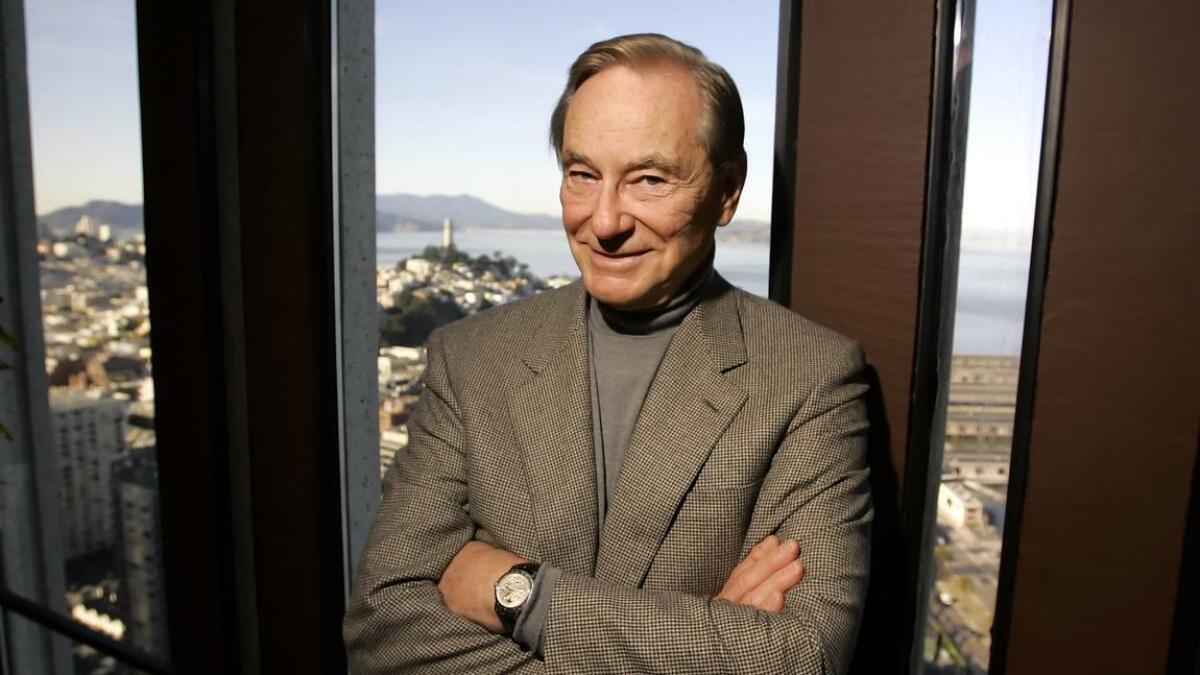More on what makes the 1% so darned wonderful, by yet another courtier

- Share via
The “Think and Grow Rich” genre is one of our oldest categories of self-help claptrap, and endlessly successful in the marketplace.
Its immutable theme, as distilled by Paul Campos of the Lawyers, Guns & Money blog, is that “rich people deserve their economic and social status because they have always had the rare personal qualities that led to their acquisition of wealth uncountable, and you — the purchaser of this book, or lecture series, or self-improvement DVDs, etc. — can now acquire these rare personal qualities, through sheer discipline and effort (and with the help of a few, very reasonably priced, authorial tips).”
Campos points us to a recent entrant in the race to part the last few dollars from the boobs who believe this stuff. It’s a listicle by one Steve Siebold published by Business Insider under the headline “What the Middle Class Doesn’t Understand About Rich People.” It features insights such as these:
- The wealthy are comfortable being uncomfortable.
- The wealthy dream about the future.
- The wealthy believe money is about freedom.
Etc., etc. Siebold is a new name to me. He turns out to be a motivational speaker type of the general Tony Robbins type except, judging by this YouTube clip, boring and with no charisma. He’s got a book out titled “How Rich People Think,” which evidently was also the source of an earlier Business Insider post along the same lines.
In today’s economy, the goal of this sort of flattery of the rich is to portray their success as coming entirely from within. Forget the advantages of birth or rigged compensation deals for CEOs or crime; it’s all about inner determination and “mindset.” Siebold writes, “Few people in the middle class really understand the mindset of the richest people. After all, if they did, they would be among the top earners as well.”
This is indeed the perennial theme, dating back to Napoleon Hill’s original “Think and Grow Rich,” first published in 1937 and still in print. It also draws from concepts perfected by Dale Carnegie, whose “How to Win Friends and Influence People” first appeared in 1936. In Carnegie’s teaching, as Ian Frazier writes in the current New York Review of Books, “character gave way to personality, self-control to self-fulfillment, industry and thrift to skill at handling people. Carnegie rejected the idea that “hard work alone is the magic key that will unlock the door to our desires.”
The result, says Carnegie’s biographer, cited by Frazier, is a model of success as one “with no sturdy commitments or beliefs, no firm moral standards, no authentic and rooted core of self. ... Only of a pliable personality eager to please others and to advance socially and economically.”
One of the marketable viewpoints of this approach is precisely that success doesn’t require hard work, or only hard work. It’s all about shortcuts -- personality, inner focus, thinking. Luckily, the success gurus are out there willing to guide us to the shortcuts. American self-help, indeed, is built on the prospect of shortcuts -- the easy path to losing weight, to gaining six-pack abs, to getting girls or guys, to learning French. Just buy this diet book, these special meals, this exercise device, this set of audiotapes.
When it comes to the economy and personal wealth, the insidious subtext of Siebold and his fellow success-mongers is that externalities have nothing to do with your failure. You simply haven’t learned “The 7 Habits of Highly Effective People,” or “The 21 Irrefutable Laws of Leadership,” or “The Magic of Thinking Big.”
Income inequality? Your fault. Siebold: “Many people go as far as accusing the wealthy of having some sort of unfair advantage. Those are easy accusations to make, and they resonate well with some people. But the truth is, there are no unfair advantages. Everyone has the same opportunity to acquire wealth.”
Of course, that’s not what the facts on the ground teach. They teach that the wealthy grow wealthier by exercising political power to get their own taxes cut and reduce opportunities for others. They show, as documented earlier this year by Raj Chetty of Harvard, Emmanuel Saez of UC Berkeley and their colleagues, that poor social mobility in the United States is correlated with rising inequality, poor primary schools, and declining family stability -- and these factors are correlated geographically, too. (See accompanying map.)
What Siebold is selling is the same old balderdash of telling the wealthy that they deserve what they have because they’re better than the rest -- smarter, more confident, more moral. The poor are simply undeserving.
“We’ve all heard the remarks,” he writes. “Rich people are lucky, rich people had an unfair advantage, rich people are crooks, rich people are selfish, etc. These are mostly empty statements with little proof to back them up.”
One would have thought this argument had been buried in ancient times by the author of Ecclesiastes: “The race is not to the swift, nor the battle to the strong, neither yet bread to the wise, nor yet riches to men of understanding, nor yet favor to men of skill; but time and chance happeneth to them all.”
But maybe he just had a bad mindset.
Keep up to date with the Economy Hub. Follow @hiltzikm on Twitter, see our Facebook page, or email mhiltzik@latimes.com.
More to Read
Inside the business of entertainment
The Wide Shot brings you news, analysis and insights on everything from streaming wars to production — and what it all means for the future.
You may occasionally receive promotional content from the Los Angeles Times.










